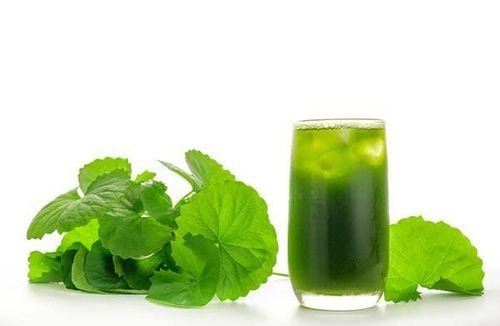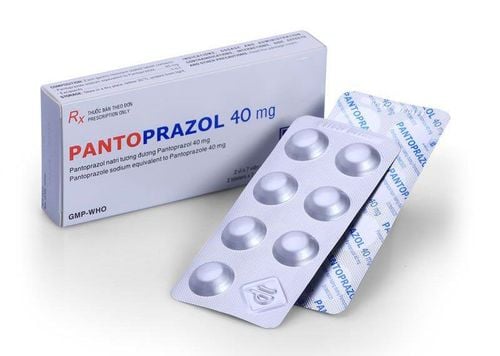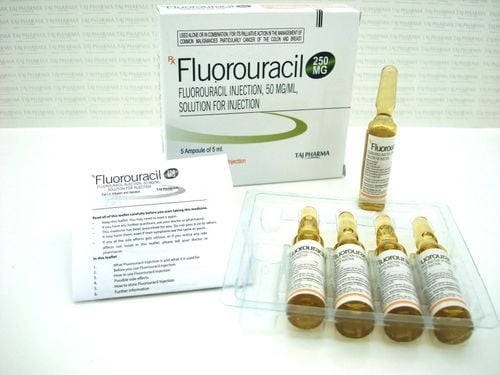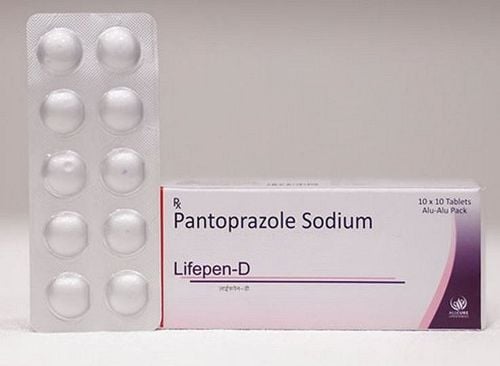This is an automatically translated article.
Chronic gastritis is an extremely common disease, the disease can appear at any age, regardless of gender. Chronic gastritis not only causes uncomfortable pain for the patient but also seriously affects health if not treated promptly. So can chronic stomach ulcers cause cancer or not?
1. Chronic gastritis
Chronic gastritis is divided into 2 main types: inflammation of the body and inflammation of the antrum. Most chronic gastritis develops secondary to some persistent gastrointestinal disturbance or dysfunction of the digestive system.
Causes of chronic gastritis are often due to unscientific diet, chemical effects, malnutrition, hormonal disorders, allergic, immune, genetic factors transmission... Chronic gastritis often progresses silently, with no specific clinical signs to accurately recognize.
Patients often have functional disorders similar to digestive disorders, this symptom usually occurs soon after eating, especially after lunch with signs: heaviness in the abdomen, belching, possibly accompanied by followed by headache, red face, bitter taste in the mouth in the morning, nausea/vomiting, loss of appetite, constipation or irregular loose stools, burning in the epigastrium after or while eating, especially burning symptoms appeared clearly after drinking beer, wine, eating spicy or sweet spices.
Epigastric pain in chronic gastritis is usually not severe, just an unpleasant, dull feeling that is transient or tends to increase after eating. Therefore, the diagnosis of the disease is mainly based on endoscopic methods and gastric biopsy.
Chronic gastritis if not detected and treated, for a long time can lead to complications such as:
Gastrointestinal bleeding; Peri-gastroduodenal inflammation; Chronic cholecystitis; Chronic pancreatitis ; Anemia due to B12 deficiency; Chronic gastritis ; Stomach cancer . In which, chronic gastritis complicated by gastric ulcer, followed by chronic gastric ulcer is the most common complication when inflammation in the antrum. Stomach cancer is also one of the possible complications of chronic gastritis.
Chronic gastritis currently has no specific treatment, depending on each patient's specific case, the doctor can use drugs to coat or nourish the mucosa to support the recovery of the gastric mucosa. thick. Patients need gastroduodenal endoscopy every 6 months - 1 year to check and promptly handle serious injuries or dangerous complications if any.
Chronic gastritis is classified into many types, due to many different causes:
Chronic gastritis type A: It is caused by the immune system destroying the cells lining the stomach itself. This form of the disease increases the risk of vitamin deficiencies, anemia and cancer; Chronic gastritis type B: This form of the disease is most common, the main cause is Helicobacter pylori bacteria. Complications of this disease include stomach ulcers, intestinal ulcers and stomach cancer; Chronic gastritis type C: The cause of chronic gastritis type C is chemical irritants such as non-steroidal anti-inflammatory drugs, alcohol or other stimulants. This form of disease can cause erosion of the mucosa and severe consequences are gastrointestinal bleeding; Other types: giant hypertrophic gastritis, eosinophilic gastritis... in which giant hypertrophic gastritis occurs due to protein deficiency, while eosinophilic gastritis occurs concurrently with other diseases. other allergies such as asthma or eczema. Patients need to eat slowly, chew well, eat easily digestible, well-cooked foods, design reasonable intervals between meals, avoid foods that are too high in fiber, too hot, too cold or too hard, and abstain from eating foods that are too heavy. spicy, sour, greasy, alcohol, coffee, tobacco...
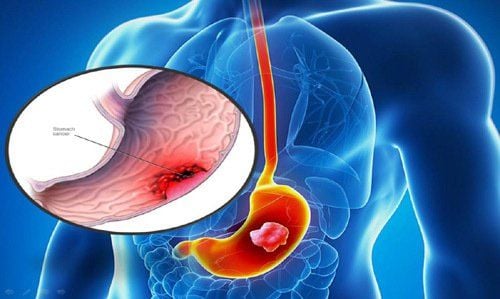
Viêm loét dạ dày mãn tính có thể do vi khuẩn Helicobacter pylori gây nên
2. Chronic stomach ulcer disease
Chronic gastritis is very common, especially in developed countries, due to the local destruction of the gastric mucosa accompanied by aggressive factors such as gastric acid, pepsin and H.P. Currently, scientists have not found the cause of mucosal ulcers, but patients often have a number of risk factors such as: genetic factors, psychological factors (such as psychological trauma and stress). work), gastrointestinal motility disorders, environmental factors (such as food, tobacco) and drugs such as aspirin, corticosteroids, non-steroidal anti-inflammatory drugs.
Manifestations of chronic gastric ulcer are mainly epigastric pain. The nature of the pain includes pain in episodes, each lasting 2-8 weeks and spaced from several months to several years, pain increasing seasonally (pain is more in winter). In addition, epigastric pain is often related to meals, most patients have pain after eating lunch and dinner.
Diagnosis of chronic gastritis is currently mainly endoscopic method, some patients sometimes need biopsy to confirm the diagnosis. Gastric ulcers that are not treated properly and promptly can leave dangerous complications such as bleeding, perforation, pyloric stenosis, ulcer, stomach cancer ...
In which, the rate of stomach cancer relatively low, only about 5-10% with chronic stomach ulcers lasting more than 10 years. Besides, chronic atrophic gastritis in the antrum has a higher chance of cancerous (30%) than duodenal ulcer.
The development of Medicine helps to increase the ability to treat chronic stomach ulcers, limit the risk of recurrence and dangerous complications. In addition to using drugs according to the doctor's regimen, patients can increase the effectiveness of treatment if they need to be proactive in changing their lifestyle, limiting causes such as using stimulants, and controlling well. psychological trauma, reasonable work and rest planning...

Biểu hiện viêm loét dạ dày mãn tính chủ yếu là triệu chứng đau thượng vị
3. Stomach Cancer
Stomach cancer is considered the most serious and dangerous complication of diseases related to the digestive system, the most important of which is chronic gastric ulcer. The mechanism of disease formation is the abnormal growth of cells, thereby forming one or more malignant tumors in the stomach.
People with stomach cancer often have the following symptoms:
Severe stomach and epigastric pain; Loss of appetite, decreased appetite, loss of appetite; Prolonged feeling of bloating; Difficulty swallowing; Ợ sourness or heartburn; Go out blood. According to statistics, stomach cancer is one of the most common cancers and has a high risk of metastasis. To contribute to the diagnosis, control and treatment of the disease, scientists divide stomach cancer into 5 different stages, including:
Stage 0: This stage is also called the carcinoma stage. . At that time, abnormal cells were detected mainly on the mucosal layer; Stage 1: In this stage the cancer cells have penetrated below the mucosal layer; Stage 2: This stage is also called submuscular cancer because the mutated cells have migrated to the stomach muscle layer; Stage 3: The cancer cells have metastasized to lymph nodes and nearby organs; End stage: At this time, the malignant cells have metastasized to different organs, even the whole body. The mortality rate of end-stage gastric cancer is very high. Chronic stomach ulcers can cause stomach cancer. Therefore, early examination and screening of diseases is extremely necessary to protect health.
Please dial HOTLINE for more information or register for an appointment HERE. Download MyVinmec app to make appointments faster and to manage your bookings easily.




